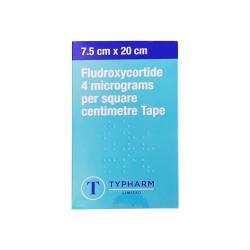- Private & confidential service
- Genuine medication
- All-inclusive service - No hidden fees
- Next day delivery
- Psoriasis
Psoriasis: start your consultation
- 1. Answer the online medical questions
- This helps our doctors to decide which treatment is safe for you.
- 2. Select your treatment
- You will see a list of recommended treatments. You can select the one you prefer.
- 3. Checkout and delivery
- Once you’ve completed the checkout, our doctors will review your answers. If all is safe, you will receive your treatment tomorrow.
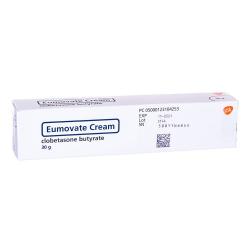
- Corticosteroid medication
- Reduces inflammation
- Easy to apply
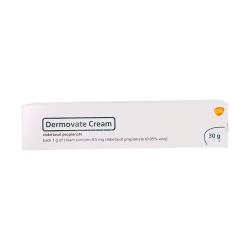
- Reduces inflammation
- Very potent corticosteroid
- Easy to apply
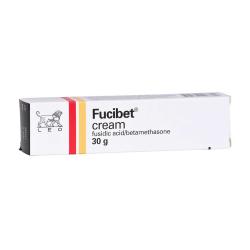
- Fights bacterial infection
- Potent corticosteroid
- Reduces inflammation
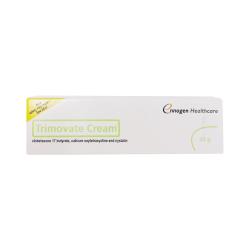
- Triple-action treatment
- Reduces inflammation and itching
- Fights both bacterial and fungal infections
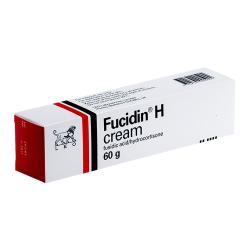
- Dual-action medication
- Reduces inflammation
- Fights bacterial infection
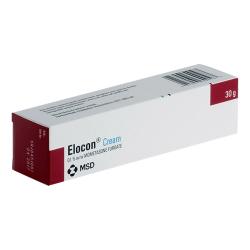
- Anti-inflammatory effect
- Potent corticosteroid
- Easy to apply
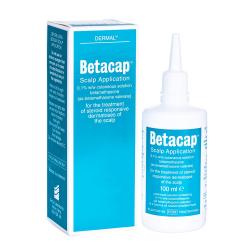
- Designed for the scalp
- Effective corticosteroid
- Reduces inflammation
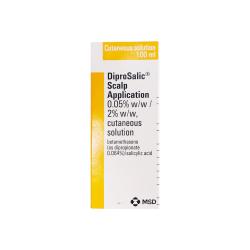
- Reduces inflammation
- Targets the scalp
- Corticosteroid effects
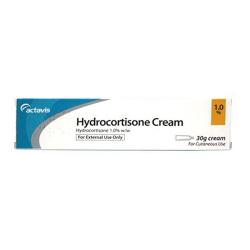
- Reduces inflammation
- Easy-to-use cream/ointment
- Corticosteroid effects
Psoriasis
Psoriasis is a chronic condition that causes red, patchy flakes of skin. It can have a wider impact on the social and mental aspects of life. Unfortunately, psoriasis cannot be cured. However, there are many treatments available to help manage symptoms. Read more below.
Topics
What is psoriasis?
Psoriasis is a common skin condition that presents with patches of red, flaky, scaly skin.
It results from an overactive immune system that causes a build-up of skin in patches (otherwise known as “plaques”) and other forms of inflammation and skin imperfections.
The entire body can be affected, however, the most commonly affected areas are the elbows, knees and scalp.
What are the different types of psoriasis?
There are different types of psoriasis defined by areas of the body they affect and how they present. Some are more rare, such as pustular psoriasis, and some are more severe, such as erythrodermic psoriasis.
The five most common types are:
- plaque psoriasis (psoriasis vulgaris) - this is the most common form, presenting as scaly patches, normally on your elbows, knees, scalp and lower back
- scalp psoriasis - patches will affect your scalp only and may be itchy or painful. Severe cases may cause hair loss
- nail psoriasis - this type affects your nails. It may discolour or deform the nails, weakening them
- guttate psoriasis - this is more common in children and young adults
- inverse psoriasis - you will experience patches in skin folds. Commonly affected areas include your armpits, under the breasts or groin
As you can see, there are a variety of classifications of psoriasis. For an accurate diagnosis, you should visit a dermatologist. The above is also not a complete list.
Other skin diseases, infections and damage can also look very similar (for example, severe sunburn, eczema, skin cancer). Always consult a professional.
What causes psoriasis?
Psoriasis is what is known as an autoimmune condition - this means that the cause is the improper function of your immune system.
People who suffer from psoriasis have an overactive immune system, which leads to the skin over-producing cells. The result is inflammation and a scaly growth of skin.
For those with a healthy immune system, the life cycle of skin cells is approximately one month. After a month, the body will naturally shed these cells as new ones replace them.
For those with psoriasis, the body produces skin cells every four to five days. This does not allow enough time for old cells to shed. The resulting buildup of cells in patches is called “plaques”.
The exact cause of this immune response is unknown - however, genetics plays a key role. Psoriasis is not contagious.
Lifestyle and environmental factors can also play a role in the severity of psoriasis and trigger flare-ups. For example:
- infections
- the weather (cold, dry conditions)
- skin injuries
- stress
- a vitamin D deficiency
- certain medications (e.g. antimalarials)
- smoking
- excessive alcohol consumption
If you think you might have psoriasis, it is important to seek treatment. If untreated, the condition, and the inflammation caused by it, can lead to further complications.
What are the symptoms?
The symptoms of psoriasis vary depending on the type you have. However, there are some symptoms that are more prevalent than others:
- red patches of scaly skin
- itching and burning sensations
- stiff and swollen joints
- dry skin
- bleeding skin
You should visit your doctor if you are unsure about a diagnosis. Some other types of psoriasis may present very differently. For example, symptoms of nail psoriasis include discoloured nails and abnormal nail growth. Alternatively, pustular psoriasis is a condition that causes pus-filled blisters in patches on your hands and feet.
If you have psoriasis, you may also experience psoriatic arthritis. This is the inflammation of the joints and can be mild to severe. More serious cases can cause long-term complications. You should always seek medical attention if you have unexplained joint pain.
For a complete list of symptoms and to properly diagnose psoriasis, you should visit your GP.
What other conditions are associated with psoriasis?
It is not unusual for psoriasis to be linked to other conditions. In some cases, it is the cause of them. In others, the severity of psoriasis may be exacerbated by secondary health issues.
Skin conditions can have a wider effect on your quality of life, contributing to issues such as:
- anxiety
- depression
- low self-esteem
It has also been linked to other chronic conditions, including:
- type-2 diabetes
- high blood pressure
- heart disease
- inflammatory bowel disease
- arthritis
- Crohn's disease
- obesity
All of the above conditions can be very serious if left untreated. You should make sure to see your doctor regularly if any of them apply to you.
What treatments are available?
You should always follow the medical advice of your doctor when treating any condition. There are more treatment methods available than those listed below - your doctor can recommend the most effective for you.
Therapy is recommended if you are also suffering from mental health issues relating to the appearance and discomfort of the condition. It is best combined with other methods that deal directly with physical symptoms. Therapy may also reduce stress, which is a common trigger of psoriasis.
Phototherapy or light therapy is a method that involves shining light on the affect areas. There are different kinds, from exposure to natural sunlight to artificial ultraviolet light (UVB/UVA/PUVA). You should ask a specialist in dermatology for more information on this treatment method.
There are many different kinds of medication, including oral, injected and topical treatments, both prescription and over-the-counter. Steroids (e.g. triamcinolone) and corticosteroids (e.g. hydrocortisone, acetonide, etc.) are the most commonly prescribed classes of medication for psoriasis. These can vary in potency, from mild to strong.
Your doctor may also prescribe:
- retinoids
- salicylic acid
- calcineurin inhibitors
- immunosuppressants (e.g. methotrexate)
- biologics
- coal tar
This is not a complete list of medications - your doctor will advise what medication is best.
HealthExpress currently offers the corticosteroid Eumovate. We ask that you first complete an online consultation before ordering.
Vitamin D has also been shown to help psoriasis recovery and prevention. Synthetic vitamin D can be applied as creams and gels.
Can I buy psoriasis treatment online?
Yes. Various medications can be ordered from HealthExpress. As some of these are corticosteroids, they require a prescription. Our doctors will provide a prescription once you have completed an online consultation (and only if they agree that the selected treatment will be effective).
During the consultation, you will be asked to detail your symptoms, past and current medical conditions and any medications you are taking. You may also be asked to upload a photo of the affected area of your skin. The entire process takes only a few minutes.
If the doctors do not approve of your use of the treatment, you will not be charged.
medical form
medication
prescription
from pharmacy


